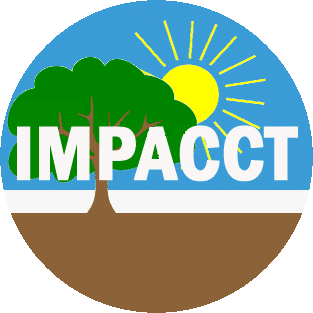| IMPACCT Overview | Home Overview The partnership Deliverables Case studies News Have your say Downloads Software Contacts |
 IMPACCT was a European Commission
research project that developed a software tool to help European agriculture reduce its
climate change impacts. The tool was designed to help farmers and growers to take action
so as to reduce their greenhouse gas emissions and improve carbon sequestration by
modifying farming practices. It also supports policy makers in the development and
improvement of climate change mitigation policies. IMPACCT was a European Commission
research project that developed a software tool to help European agriculture reduce its
climate change impacts. The tool was designed to help farmers and growers to take action
so as to reduce their greenhouse gas emissions and improve carbon sequestration by
modifying farming practices. It also supports policy makers in the development and
improvement of climate change mitigation policies.Although the focus of IMPACCT was on climate change, it recognised that sustainable agriculture is about finding a balance between environmental, economic and social objectives. Achieving one objective (i.e. climate change mitigation) should not be pursued at the expense of other objectives. Instead, agriculture needs to be economically viable, produce enough food, fibre and oils to equitably meet the needs of an increasing global population, and ensure that any other detrimental environmental impacts are minimised to acceptable levels. Therefore, the IMPACCT project took a whole farm integrated approach which sought to identify any benefits and/or burdens on the environment, farm economics or society more generally that changing farming practices to mitigate climate change might have. The model development process was supported by a comprehensive literature and data review and a number of farm case studies/consultation exercises in several EC Member States. This process helped to define the requirements of the model based on the needs of end users, provide concrete examples of mitigation actions and provide a picture of what was already happening across the EU. The project consortium was being led by the Agriculture and Environment Research Unit at the University of Hertfordshire, England, with partners in France, Italy, Poland, Slovenia, Scotland, Hungary and Germany. See our 'Partnership' page for full details of the team. For more information, to access project documentation or to become involved, contact us, or visit our 'Have your say' page. |
|
 © University of Hertfordshire, 2009. |
|

